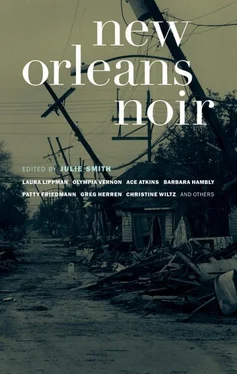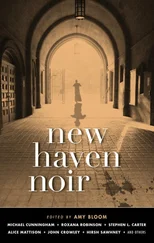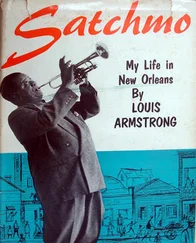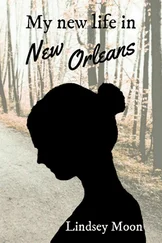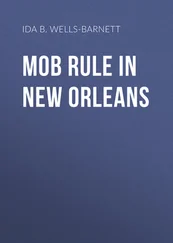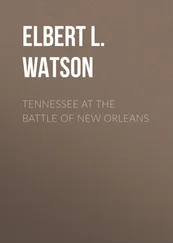“I won’t go to Baton Rouge. My father wants me to stay with relatives who I can’t tolerate.”
“Why can’t you tolerate them? From what I hear, they eat and dance in Baton Rouge just like they do here.”
“They drink and argue constantly. They have no culture.”
He poured himself another whiskey and laughed. “Sometimes I forget how haughty you are.”
“I am not haughty,” I said, and waved goodbye to him as I rushed to catch the trolley. I couldn’t help but like Father Fitzpatrick. He was a kind and worldly man who was ill-suited for the priesthood, and largely lived his life as though he wasn’t part of it. I knew that he frequented bars and gambling dens, and it was rumored that he had more than one female admirer, but he had a good heart and made sure that those who had need in the Seventh Ward were tended to, and that the Creoles and Negroes were treated with the same respect as the whites. The rumors that Father Fitzpatrick was on the way out of town were very hard to ignore, but until the day they ran him out of town, his rage at Murphy would be uncontrollable. It was only a matter of time before he’d get a couple too many whiskeys in him and walk the few blocks to Sacred Heart to bust Murphy’s eye once again, and this time Murphy would most certainly be ready for him.
When I arrived home on Gravier she was already on the porch, fanning herself with her hat. Even from a distance she looked tall and imposing, an iron rail of a woman, black as night and fiercer than a lioness.
“Your father asked me to escort you to Baton Rouge. He explained to me his thinking and I agree with him. He has very good reasons for you to go.”
“Yes, Aunt Odie, he does, or so I’ve been hearing for the last few days.”
“Have you gotten threats?”
“Threats? Not yet. I can’t say that I expect threats.”
“Child, think. You assaulted the kind of man who has the means and the temperament to hurt you.”
“What do you suggest?”
“Listen to your father. If you don’t go to Baton Rouge, you need to leave this house and move in with him for a time.”
“I can’t do that. This is my mother’s house and I promised her I wouldn’t become a child tethered to his ankle.”
“Well, if you’re not going to Baton Rouge, I will stay with you until this situation is resolved. Murphy holds sway with those drunken countrymen of his. Those Irish thugs drove the colored off the docks. They want to chase us out of town and they will certainly hurt you if given a chance.”
I always listened to Aunt Odie, but of course she didn’t necessarily feel the same sort of obligation to listen to me. If she thought I needed watching, I would be watched. I was a woman with some means and I did have a mind equal to a man’s, and though I loved my father, sometimes it seemed I was still that child wrapped around his ankle.
I was preparing to stew a rabbit that evening and my hands were bloody with it, when I heard someone rattling the screen. I supposed it might have been Aunt Odie, who had gone to the market for lemons. I called out to her, but she didn’t respond. I turned to the door and saw a redhaired white man standing there, rubbing his hands together with a brutal look on his face.
“You know why I’m here,” he said with vicious pleasure.
“Get out of my house!” I shouted at him.
“I will teach you a lesson.”
“Damnit, I said get out of here!”
He ignored me and took a step forward, pulling at his belt. I retreated to the kitchen, hoping to get my hands on a knife before he reached me.
Then I heard Aunt Odie’s voice.
“Stop!” She had a knife in one hand and an open jar in the other filled with what looked to be water.
The big redhaired man didn’t seem impressed. He pulled a blackjack from his pocket and started toward her while keeping an eye on me.
“Run home now, before something bad happens to you,” Odie said, as if she were talking to a child.
“Nigger woman, don’t order me.”
Aunt Odie tossed the contents of the jar into his face and he screamed and smashed against the wall and the door before stumbling outside, begging for water for his eyes.
“Lye,” she said as she locked the door. “It’s as good as a bullet or a knife.”
I was in Baton Rouge when I heard about Father Fitzpatrick; that he never made it home the night before from the Napoleon House, the bar he frequented in the French Quarter.
We were sure that he was dead, beaten to death by one of Murphy’s hooligans and tossed into the river. I wasn’t surprised, though I was grief-stricken. My father insisted that I stay in Baton Rouge, but I was nearly losing my mind with my relatives.
I spent weeks at my aunt’s bakery, sweat blinding my eyes, roasting while the bread baked. My unhappiness was too much for words; I didn’t want to drown in my sweat in a town without culture, without my friends and loved ones. I was finished with Baton Rouge; my time in exile was done. I had to return to New Orleans with or without my father’s permission. My mother hadn’t raised me to be a coward, living in fear, in seclusion. I had to know what happened to Father Fitzpatrick.
Rumors continued to roil that the colored would be attacked if they tried to enter Sacred Heart, and worse. I wanted one last conversation with Father Murphy, one that he wouldn’t recover from, but that wasn’t to happen. I can’t say I was unhappy when I heard that Murphy was found beaten to death in the rectory, but the bitterness in my heart would last as long as my memory of Father Fitzpatrick.
French Quarter
There must be hundreds of kids who have wound up dead in the French Quarter. Eva Pierce was just one of them. Everywhere you walk in the neighborhood you see fliers about them taped to lampposts: Information Wanted or $5,000 Reward . And below is a blurry snapshot of some scruffy young person. After Eva’s body was discovered, bundled inside a blue Tommy Hilfiger comforter floating in Bayou St. John, the girl’s mother moved down here from Idaho or Iowa or Ohio — however you pronounce it — and blanketed the Quarter with those signs. She even printed her daughter’s last poem on the flier, but no dice. The fifteen hours between when Eva was last seen and when her body was found in the bayou remained a blank.
That’s when the mother rang me. I’m listed in the Yellow Pages: Off-Duty Homicide Detective: Dead or Alive, Inc.
Mrs. Pierce met me under the bingo board at Fiorella’s restaurant at the French Market. It wasn’t my suggestion. I hadn’t been to the market since I was a kid, when my daddy used to take me on Saturday mornings to squabble with his wop relatives while we loaded up at a discount on their fruits and vegetables. On my daddy’s side I’m related to everyone who ever sold a pastry, an eggplant, or a bottle of dago red in the Quarter, and on my mother’s side to everyone who ever ran the numbers, pimped girls, or took a kickback. I peeked inside the rotting old market, but sure didn’t see any Italians or tomatoes. Now it’s just Chinese selling knock-off sunglasses to tourists.
Mrs. Pierce was short and round as a cannoli, with a stiff gray bouffant and a complexion like powdered sugar. With those cat’s-eye bifocals, she looked like someone who might be playing bingo at Fiorella’s. But when she opened her mouth... Twilight Zone . Mrs. Pierce said it wasn’t drugs or sex that did her daughter in, but — get this — poetry.
“And the police aren’t doing anything,” she said with a flat Midwestern whine that made me want to go suck a lemon.
“Look, lady, I’m a cop — Lieutenant Vincent Panarello, Sixth District — and the police have more trouble than they can handle in New Orleans. They don’t pay us much... I got a wife and three kids in Terrytown, so that’s why I moonlight as a detective.”
Читать дальше
